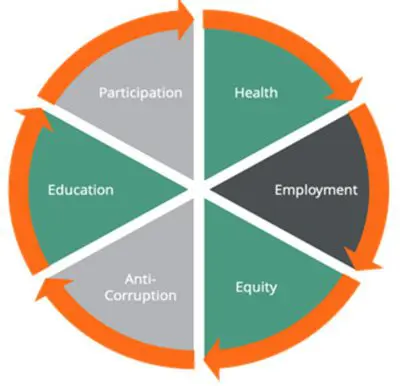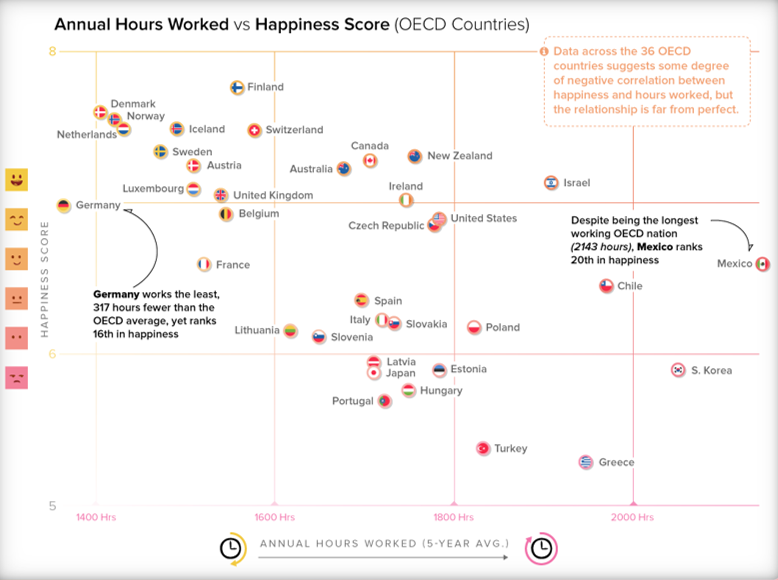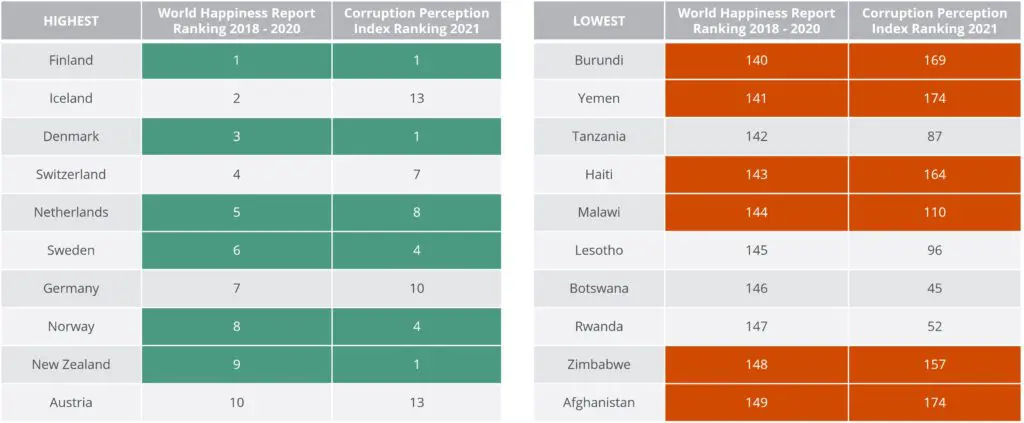Public policy is complex and messy, and sadly (ironically!) happiness and wellbeing as public policy is not the magic bullet solution. However, it does provide a framework to more effectively prioritize policies.
“Our health, our family and relationships, the quality and nature of our work, the environment and education are all-important contributors to our sense of satisfaction with our lives. If we are to measure what really matters to people, then we need to measure these factors, too.” (Kinderman, 2015).
These happiness measurements can help government adapt policy as long “cultural factors” are considered (Bales, 2016).
Why is Citizen Participation Critical to Happiness and Wellbeing Government Policies?
It is very difficult to design a public policy for happiness and wellbeing without a strong understanding of what it is that creates happiness and how these factors interact with public policy. This is not to say that citizen happiness is a complete mystery to policymakers.
“Education policy, taxation rates, rules on benefits, and investment decisions by government all determine the quality of our employment, and therefore our wellbeing. Then add to this long list crime and justice matters, working hours, transport policies and city planning – all of these involve decisions at a state level, and have an impact on our wellbeing.” (Kinderman, 2015)
Wellbeing policy is a multi-dimensional challenge meaning that any individual initiative has consequences that can affect happiness in other areas. Therefore, citizen participation in policy design and outcomes feedback is critical to achieve optimal outcomes at the lowest costs.
Which Policy Sectors Benefit From Happiness and Wellbeing Measurements?
“The extra happiness which that policy generates per dollar of expenditure provides the critical ratio which all other projects must exceed if they are to pass the test of value for money.” (Layard and O’Donnell, 2015)

Employment
Policies that increase employment and help workers find jobs improves national wellbeing because the “long-lasting effect unemployment…the unhappiness from being laid off, the sense of being useless, tends to linger on in some cases for years afterwards.” (Miners, 2010)
Working hours and employment flexibility can also improve national happiness, however, there does not seem to be a direct correlation as the graph below shows:

Yet there is no doubt that public policies that insulate citizens from the ups and downs of the economy appear to promote greater human happiness for all citizens in a nation. (Flavin and Radcliff, 2014)
Poverty and Inequality
Policies to increase income for the poor are considered effective but “for those above poverty level, increased income doesn’t improve average happiness levels very much.” (Martin, 2014) While poverty certainly makes people miserable, wealth does not bring happiness.
The notion of inequity in public policy depends on the country context and the relationship between income inequality and happiness is more complex than was previously assumed. While excessive income inequality may impair fairness, excessive economic egalitarianism may reduce efficiency. A recent study showed that before a critical level of income inequality is reached, rising income inequality may be accompanied by a higher level of happiness, probably because the social comparison of aspiring individuals with their richer co-nationals promotes expectations that the income gap can be closed and offers a sense of financial optimism.
Health
Health on the other hand is a strong indicator of happiness. Happy people live longer, healthier lives which “turns out to be quite good for society.” (Miners, 2010) Thus investments in national health services are a key component of happiness economics.
Education
Some researchers claim that education is probably more strongly correlated with future happiness throughout adulthood than any other variable and that the more education you have, the happier you tend to be. Having a college degree is correlated with other sources of happiness: People who go to college also tend to have better health outcomes, more stable marriages, and longer lives than those who didn’t graduate from high school.
Governance
The absence of corruption in a society is another important driver of national happiness, as evidenced by the continuous top ranking of Scandinavian countries in the World Happiness Report. Indeed, even just the perception of corruption has a significant negative effect on happiness. If one compares the Transparency International reports on global corruption with the World Happiness Report, some interesting trends emerge.

Conclusion
We believe that reorienting economic objectives from growth to wellbeing simplifies policy design while improving government effectiveness.
Please get in touch to set up a discussion on how we could help your country to tie happiness outcomes into your Public Financial Management systems and processes.
References
- Bales, S. Happiness Matters: Measuring Happiness to Inform Government Policy. Prospect Journal of International Affairs, November 15, 2016. https://prospectjournal.org/2016/11/15/happiness-matters-measuring-happiness-to-inform-government-policy/
- Flavin, P; Radcliff, B; What Kinds of Public Policies Promote Human Happiness? Scholars Strategy Network, August, 2014. http://www.scholarsstrategynetwork.org/brief/what-kinds-public-policies-promote-human-happiness
- Kinderman, P. Should Governments Measure Happiness? Greater Good, September 25, 2015. http://greatergood.berkeley.edu/article/item/should_governments_measure_happiness
- Layard, R. Government’s role should be to increase happiness and reduce misery. Policy analysis must be recast to reflect outcomes in terms of changes to happiness. London School of Economics, 2011. http://blogs.lse.ac.uk/politicsandpolicy/happines-and-misery/
- Layard, R; O’Donnell, G. How to Make Policy When Happiness is the Goal. World Happiness Report, September 2015.http://worldhappiness.report
- Martin, B. Government goals and policy get in the way of our happiness. The Conversation, March 19, 2014.https://theconversation.com/government-goals-and-policy-get-in-the-way-of-our-happiness-23196
- Miners, Z. How Government Can Make the American Public Happy. USNews and World Report, April 30, 2010. http://www.usnews.com/opinion/articles/2010/04/30/how-government-can-make-the-american-public-happy-life-liberty-and-the-pursuit-of-happiness
- Sachs, J. Happiness and Sustainable Development: Concepts and Evidence. World Happiness Report, December, 2016. http://worldhappiness.report
- Sacks, D; Stevenson, B; Wolfers, J. Subjective wellbeing, income, economic development and growth
- Booth, P. (editor) … and the Pursuit of Happiness, Wellbeing and the Role of Government. The Institute of Economic Affairs, 2012. http://iea.org.uk/sites/default/files/publications/files/IEA%20Pursuit%20of%20Happiness%20web.pdf
- Snowden, C. Are More Equal Countries Happier? Booth, P. (editor) … and the Pursuit of Happiness, Wellbeing and the Role of Government. The Institute of Economic Affairs, 2012. http://iea.org.uk/sites/default/files/publications/files/IEA%20Pursuit%20of%20Happiness%20web.pdf
